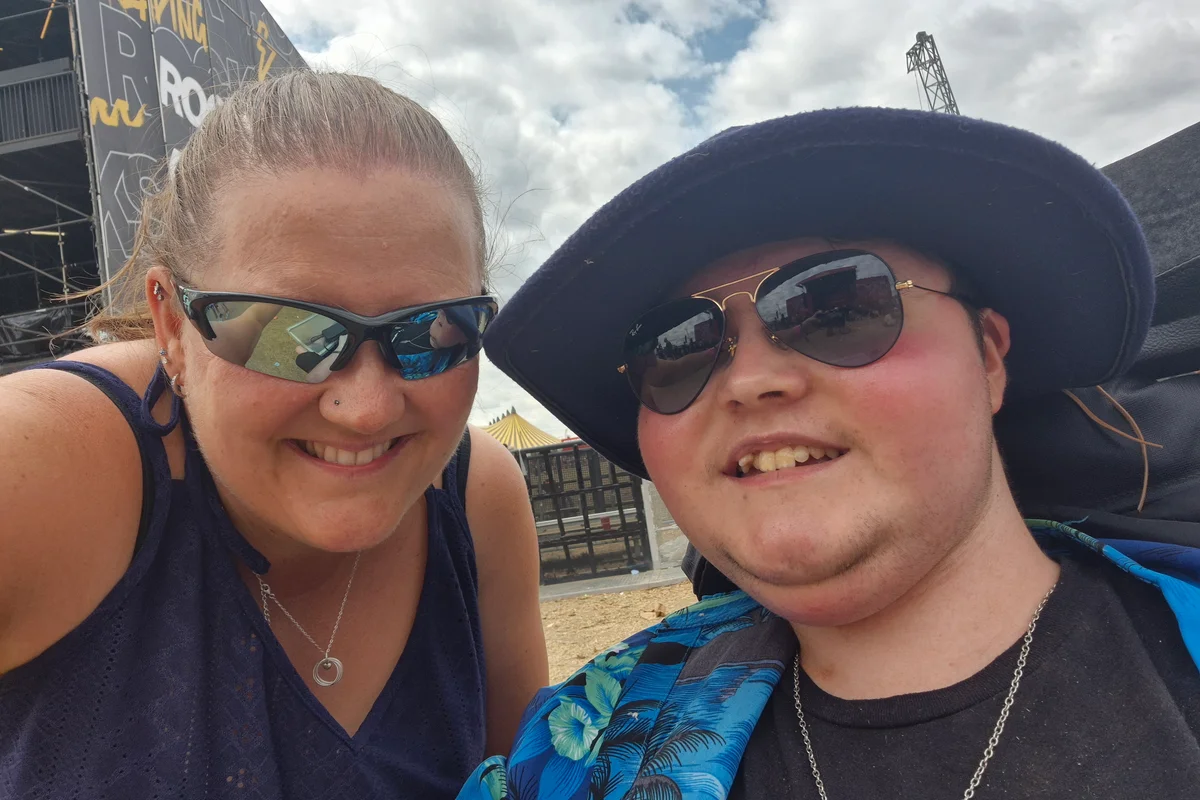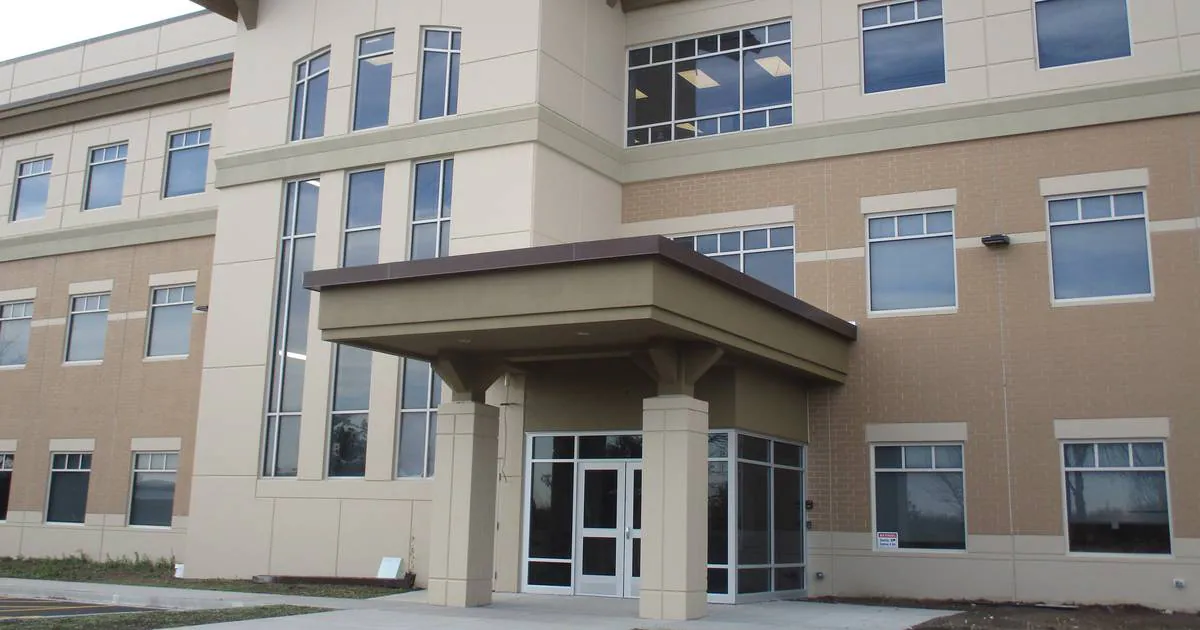By Rebecca Thomas
Copyright independent

Callum Smith, 19, has become a prisoner in his own home, unable to leave or even enjoy the simple pleasures of his garden for the past month.
Mr Smith, who has Duchenne Muscular Dystrophy, a severe muscle-wasting condition, relies on his wheelchair to get around independently and to go to university.
But just weeks before he is due to begin his second year at Buckinghamshire New University in High Wycombe, he fears he will be forced to miss classes because the collapse of one of the largest suppliers of NHS wheelchairs means he has no idea when his broken chair can be fixed.
Mr Smith is one of the thousands of patients whose freedoms have been put in jeopardy after NRS Healthcare went into liquidation last month, forcing the government to step in and provide £300,000 in emergency funding to allow services to continue.
NHS hospitals and local authorities have been left “scrambling” in the rush to find new suppliers, while hundreds of NRS Healthcare employees are reported to have lost their jobs.
“My wheelchair is my lifeline… and I am now stranded at home with no means to live the rest of my life under my terms. I feel totally discriminated against,” Mr Smith said.
And he is not alone. The latest NHS figures, analysed by The Independent, show more than 10,000 adults are waiting for NHS community wheelchair and equipment services.
The Royal College of Occupational Therapists (RCOT) told The Independent a survey of its members found some patients were stuck in hospital because they don’t have the equipment needed to be discharged, while charity Whizz Kids said some families had been told they will have to wait up to six months for their child’s wheelchair.
Director of practice and innovation at RCOT, Karin Orman, said: “Callum’s story is heartbreaking. And this isn’t an isolated case… We’ve heard of children not being able to return to school at the start of term while waiting for equipment too.”
“We’re particularly concerned that difficulties in accessing equipment might lead to inequalities – some people may be able to afford to buy equipment privately, but those who can’t miss out.”
Occupational therapists surveyed warned that the crisis with NRS Healthcare has revealed a deeper weakness in the NHS’s system for buying equipment, which it says prioritises cost over safety.
The RCOT has now called on the government to review its community equipment service arrangements to uncover what led to the collapse of NRS Healthcare, to prevent it from happening again.
Mr Smith has now spent weeks indoors, unable to move from room to room within his own house, after his wheelchair broke in mid-August.
He said: “It feels like I am in prison because I’m stuck in my room… I’m really worried about not being able to return to university for my 2nd year.”
The problems began in June when the wheels were not moving properly, but weeks later, teh chair had completely failed.
Callum’s mother, Emily Gray, 42, said she was told that Millbrook Healthcare, which took over some services NRS Healthcare provided on 31 July, did not have the parts needed to repair Mr Smith’s chair.
Mr Grey said her son has had to miss vital medical appointments as he cannot leave the house, and hiring private equipment is not an option, with quotes of up to £450 per week to hire a replacement.
She said: “As a parent, it’s horrible for me because I can’t, I can’t wave a magic wand. I can’t fix this. We’re trying absolutely every avenue that we can… we’re desperate.”
Vicky Pleydell, chair of a charity Action Duchenne, told The Independent the collapse of NRS Healthcare has had a “devastating” impact on families.
She said: “Despite assurances that alternative suppliers would be found, many families report there is still no clear provision. Vital equipment remains unrepaired because no provider has been identified to take on responsibility for specialist equipment. This situation is unacceptable.”
Millbrook Healthcare said it was “working diligently to repair Mr Smith’s wheelchair” and that the delay was due to delays in getting specialist parts from the manufacturer.
It added: “We know how important timely access to equipment is for people’s independence and wellbeing, and we take any concerns raised very seriously.”
Concerns over the supply of NHS equipment by NRS have been raised as recently as January, following the death of 87-year-old Shiel Wexler, who suffered a stroke linked to a pressure ulcer in February 2024.
According to her inquest, delays in specialist equipment arriving increased her immobility, and “as a result of delayed and defective equipment being supplied, also more than minimally contributed to her death”.
In a prevention of future deaths report, Coroner Ian Potter said there was evidence “there had been numerous and ongoing delays and ‘problems’ in the service provided by NRS Healthcare” to Mrs Wrexler.
He said “repeated” concerns had been raised with the local NHS hospital and commissioners, and that there was evidence of defective equipment and delays from NRS healthcare raised at other inquests.
In its official response to the coroner, NRS Healthcare challenged that there had been a delay in equipment delivery, saying it received the next-day delivery order too late in the day, and said it did not have a record of any concerns about faults in the equipment.
A spokesperson for the official receiver winding up NRS Healthcare’s affairs said it would investigate the cause of the company’s insolvency and the conduct of its directors.
“As part of this process, the government is working with a range of partners who are supporting local authorities to minimise any potential disruption, find alternative suppliers where needed and ensure patients continue to receive high-quality care.”
A Department of Health and Social Care spokesperson said: “We know how vital wheelchairs and community equipment are for people’s independence and we are deeply concerned by the impact delays can have on patients and families.”
It said the government immediately stepped in with emergency support to allow services to continue while local councils arranged for new providers, and that local authorities are legally responsible for ensuring people get the equipment they need.
NHS England was approached for comment.



